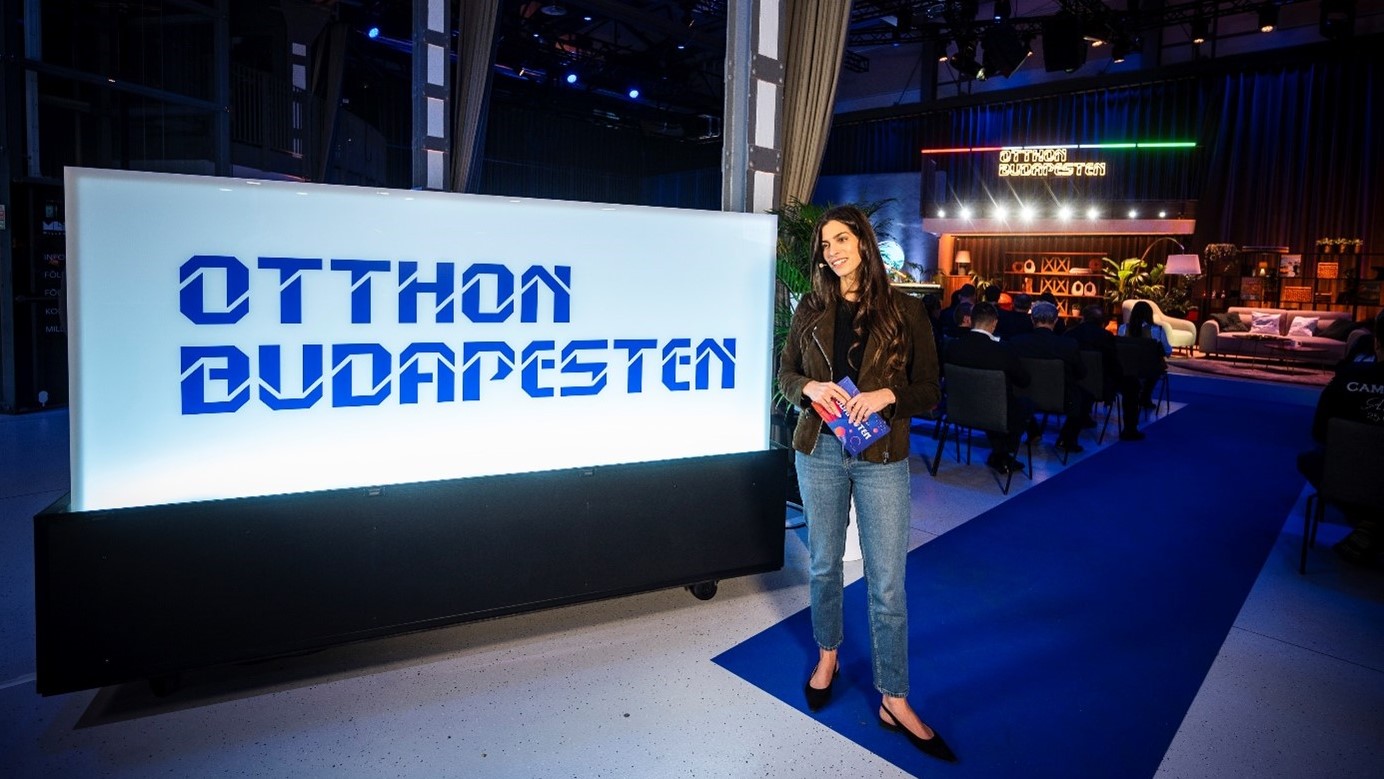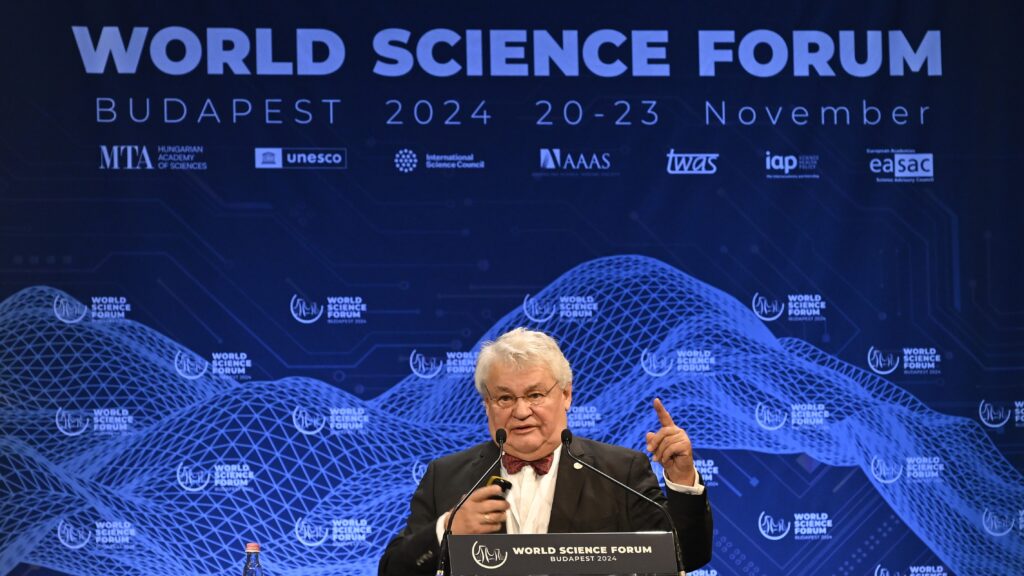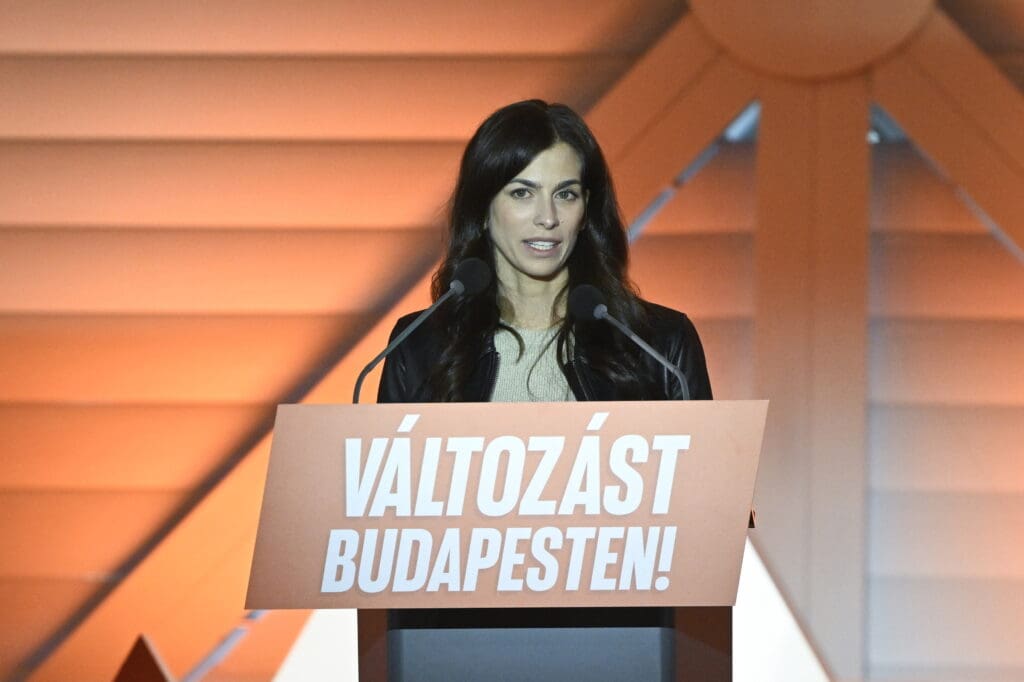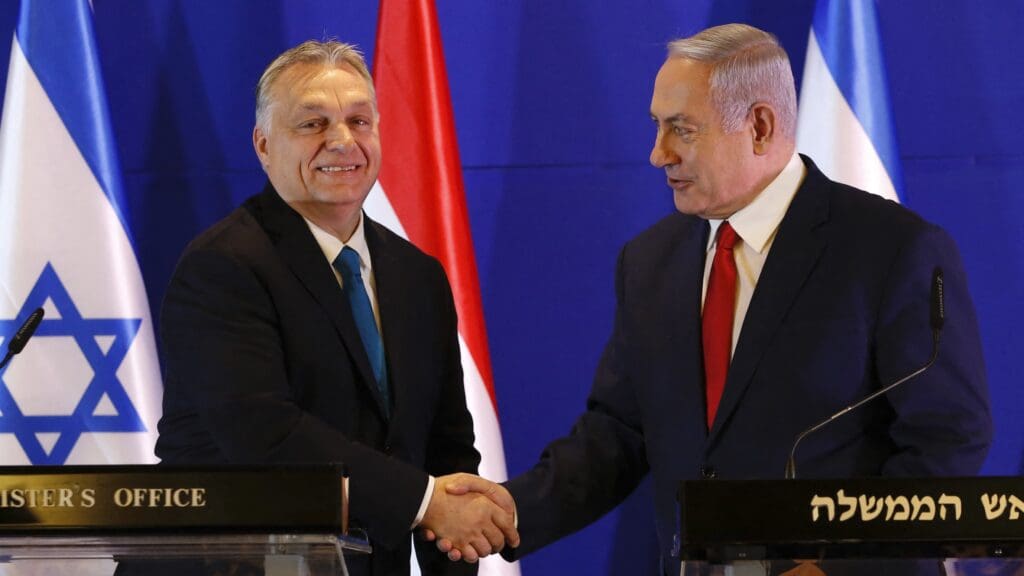The first instalment of the ‘At Home in Budapest’ (Otthon Budapesten) event series brought the Hungarian capital’s future and its community to centre stage. Held in a prestigious venue in the heart of the city, the evening featured engaging discussions about Budapest’s unique role in the world, challenges in urban planning, and its rise as a hub for international filmmaking.
The event was opened by Alexandra Szentkirályi, former Deputy Mayor of Budapest, now faction leader of Fidesz in the Budapest municipal assembly. Szentkirályi is a passionate host and advocate for the city, set the tone by expressing her deep connection to Budapest. ‘Budapest is not just a city—it’s a community, a shared home for all of us who live here. It’s our collective responsibility to make it even more liveable, sustainable, and welcoming for future generations,’ she stated.
Challenges in Urban Planning: A Competitive Landscape
The first speaker, urban planning expert Koppány Kőrösi, outlined Budapest’s position among its Central European peers. He noted that cities like Vienna, Prague, and Warsaw represent strong competition, both for tourists and international investors.
‘Budapest is increasingly on the radar of global investors and visitors, yet its unique identity must be preserved while addressing critical issues like transport, housing, and liveability,’ Kőrösi explained.
A major challenge he highlighted was the population decline in the city. Since the fall of communism, Budapest has lost over 400,000 residents, a stark contrast to other regional capitals that are experiencing population growth. This exodus has placed significant pressure on the suburban and metropolita areas, creating environmental and infrastructure problems due to increased commuting.
Housing and Sustainability: The Path Ahead
The issue of housing emerged as another central topic. Budapest’s housing market is grappling with rising prices, often driven by speculative investments, which make homeownership increasingly difficult for young people and families. ‘The housing crisis in Budapest is both structural and financial,’ Kőrösi observed. He also called attention to the scarcity of quality housing: the average newly built flat in the city is just 57 square metres, far from adequate for families. Student accommodation is also severely lacking, with only 14,881 residence hall places available for over 146,000 university students.
Budapest: A Global Film Capital
The next segment celebrated Budapest’s flourishing reputation in the film industry. Endre Pallós, an experienced prop master, and Viktor Mitev, a location manager for major Hollywood productions, shared fascinating insights into their work in the city. Budapest, they explained, is highly sought after for its architectural versatility and favourable production conditions.

‘Budapest is not just a cost-effective location; it’s a creative powerhouse. The talent and professionalism of local crews make it a top choice for international productions,’ Viktor Mitev emphasised.
The city’s role as a filming destination extends beyond its affordability, with productions such as Blade Runner 2049 and Dune showcasing Budapest’s ability to double as iconic global locations.
Budapest on the Global Stage: Insights from Minister Péter Szijjártó
The evening culminated with remarks from Péter Szijjártó, Minister of Foreign Affairs and Trade, who offered his perspective on Budapest’s international reputation. He noted the city’s exceptional safety as a key strength: ‘One of the greatest compliments I hear from visitors is that Budapest feels safe. In a city of this size, women can walk alone at night without fear—this is a rare quality in Europe today, and it’s something we must preserve.’
Szijjártó also discussed Budapest’s unique position as a bridge between tradition and modernity. ‘What sets Budapest apart is the seamless coexistence of its historic and modern elements, blended in a way that feels tasteful and harmonious. This balance creates a city that offers both authenticity and vibrancy,’ he opined.

Looking ahead, the Minister stressed the importance of quality tourism, stating: ‘Budapest should focus on attracting visitors who appreciate culture and history, rather than mass tourism. By prioritising quality, we can preserve the city’s unique character while driving economic growth.’
Budapest’s Future: Challenges and Opportunities
Closing the event, Szentkirályi Alexandra reflected on the city’s potential:‘Budapest is a city that excites tourists, inspires artists, and attracts professionals from all over the world. But its future depends on us—those who live here—to make it even better,’ she underscored.
The ‘At Home in Budapest’ series seeks to ignite meaningful conversations about the city’s development. As Minister Szijjártó aptly put it:
‘Budapest lies at the heart of the world—and it is our task to strengthen that heart.’
The evening showed that Budapest’s path forward requires vision and collaboration. It is a city brimming with potential, ready to claim its rightful place as one of Europe’s most dynamic capitals, whose future should be envisioned by all stakeholders. Aware of this need, the organizers plan to host further discussions every other month or two.
Related articles:








